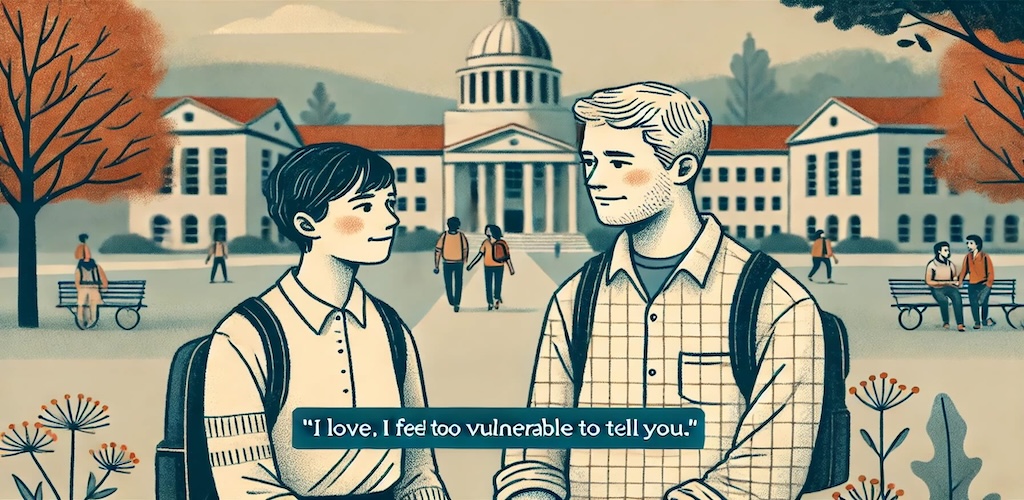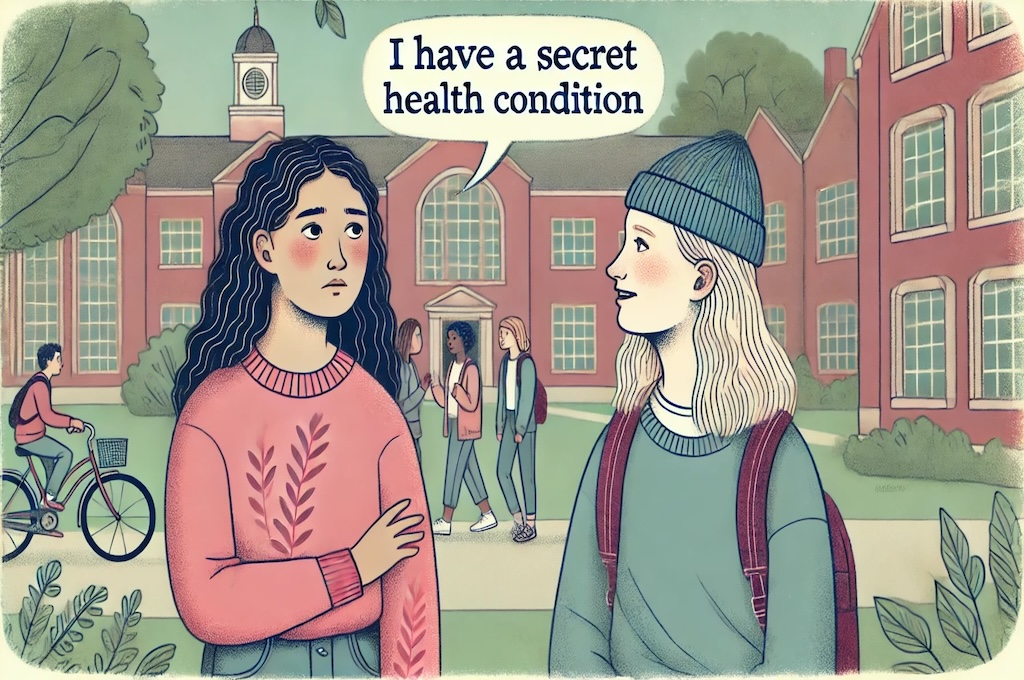Written by Dr. Paul Kelly, C.Psych. July 2, 2024
We fear people will reject us if they know our flaws.
This is usually wrong.
People will like us more when we show our ‘messy’ bits.
Discover the benefits of vulnerability.
It can be your secret for closer relationships.
and learn how the Beautiful Mess Effect can deepen your connections.
Table of Contents
- What is the Beautiful Mess Effect?
- Make the Beautiful Mess Effect Work for You
- The Benefits of Vulnerability
- Conclusion
- Personal Note and Recommended Research
What is the Beautiful Mess Effect?
 How would people react if you said these things?
How would people react if you said these things?
“I love you. I feel too vulnerable to tell you.”
“I am afraid to go to the cafeteria and I can’t eat where I am nervous.”
“I wet the bed when I was a kid.”
“I have a scar. The story is embarrassing.”
Here is a big surprise: People like you more when you are vulnerable. When you let people see that you are ‘messy’, not perfect, they feel closer to you.
We are afraid that people will judge us and reject us. That makes us hesitant to show our private feelings, flaws, or mistakes.
But when we are vulnerable people do not judge us as harshly as we judge ourselves. They like us more and feel closer to us.
That’s called the Beautiful Mess Effect.
It is about embracing vulnerability, and the benefits are profound.
Bronee Brown put it this way: “We love seeing raw truth and openness in other people, but we are afraid to let them see it in us.”
Make the Beautiful Mess Effect Work for You
 Now that you know about the Beautiful Mess Effect, you can use it to improve your relationships. Here are some tips for getting started:
Now that you know about the Beautiful Mess Effect, you can use it to improve your relationships. Here are some tips for getting started:
- Try to remember that people will usually not judge you as harshly as you judge yourself.
- Be willing to take a chance and share something vulnerable.
- Try it a few times to see what happens. You will be surprised.
- Don’t let fear hold you back, but at the same time trust your common sense. Be careful about sharing with someone who is mean or self-centered.
The Benefits of Vulnerability
Here are some of the benefits of letting yourself be vulnerable with others.
- When you admit mistakes, it takes the pressure off. You can learn that people will not make a big deal about your mistakes. They will accept that you are human. You can learn to be more accepting of yourself as well.
- When you confess romantic feelings, it can open the door to a deeper relationship. Even if the other person does not feel the same way, they will respect you and you will know where you stand. Maybe they were just waiting for you to speak first.

- When you disclose things about yourself, your friendships can go to deeper. People will trust you. You will feel that you belong.
- Self-disclosure is good for your mental health. People can offer help if they know that you are struggling. Concealing our feelings keeps us feeling lonely and isolated.
- When you admit mistakes or ignorance, you can get coaching and feedback. People will help you to learn what you need. They will also tell you about their struggle with imposter syndrome and you can share a laugh together.

Conclusion
Embracing your beautiful mess means accepting your vulnerabilities. You can learn the benefits of being open by taking a chance to be vulnerable.
When you share your true self, you build stronger relationships, increase self-acceptance, and grow as a person. Remember, being vulnerable is not a weakness – it’s a strength that can help you live a fuller, more authentic life.
So, the next time you feel afraid to show your true feelings, remember the beautiful mess effect. Embrace your beautiful mess and see the power of vulnerability in your life.
Personal Note and Recommended Research
I have read these articles and books. They explain the research behind the Beautiful Mess Effect. My therapists and I use this advice to help our clients.
I know that the advice is helpful because we measure client progress at my Clinic. I hope that you can use this advice to find more connection and joy in your life.
Wishing you well.
- Bruk, A. et al. Beautiful mess effect : Self-other differences in evaluation of showing vulnerability. (2018) Journal of Personality and Social Psychology, Vol. 115, No. 2, 192-205. Retrieved from: https://psycnet.apa.org/doi/10.1037/pspa0000120
- Jaffe, M.E. et al. Secretive and close? How sharing secrets may impact perceptions of distance. Plos One, April 26, 2023. Retrieved from: https://doi.org/10.1371/journal.pone.0282643
- Kumar, A. Some things aren’t better left unsaid: Interpersonal barriers to gratitude expression and prosocial engagement. Current Opinion in Psychology, 2022: 43: 156-160. Retrieved from: https://static1.squarespace.com/static/5394dfa6e4b0d7fc44700a04/t/611f158535bafd36ca938fdb/1629427077403/Kumar+%28in+press%29+Some+things+arent+better+left+unsaid+CO+Psych.pdf
- Brown, B. Daring Gently: How the Courage to Be Vulnerable Transforms the Way We Live, Love, Parent, and Lead. 2012. Avery
- Robson, David. The Laws of Connection. 2024. Pegasus Books


